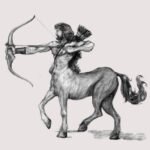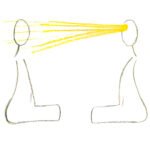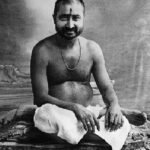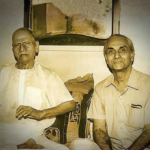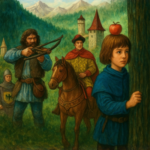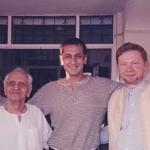In the Tarot, the Ace of Swords is usually depicted as an awe-inspiring, double-edged sword suspended from heaven, with numerous streaks of light reflecting off its dazzling blade. The card of knowledge and the intellect, it symbolises spiritual victory and total, uncompromising clarity of thought.

While this spiritual victory would most certainly bring peace and freedom, there may also be pain. Thus, it is a double-edged sword.
The Ace of Swords is the card of new beginnings – a fresh way of looking at life. A new life arising from the ashes of the old, like the phoenix. And how would new life arise from the old? Could it be through a change in the way you look at life and living? That change would require you to be clear about what you want most in life.
In order to be clear about what one wants the most, one first needs clarity to see and understand the very basis of life and living.
What precisely is ‘daily living’? It must begin with a human being facing a situation, at a particular moment. Dealing with any situation can obviously only mean deciding what one wants in that moment and doing whatever one thinks one should do in order to get it.
This is the basis of daily living which applies to any human being at any time – you and me now, or the caveman who lived thousands of years ago. The situation, of course, may be totally different, but daily living must surely mean doing, in any situation, precisely whatever one believes one should do.
Daily living, as we know it, only happens because the human being has the total free will to do whatever he thinks or feels like doing in any given circumstance. It is, therefore, futile to ask if the human being has free will. If he did not, daily living could not happen!
If we continue with the analysis we will find that while everyone certainly must have free will, our personal experience is that what actually happens after exercising it has never been in anyone’s control. What actually happens is that:
- Sometimes one gets what one wanted.
- Sometimes one does not get what one hoped for.
- Sometimes, what one gets is beyond one’s expectation, for better or worse.
This applies equally to an ordinary person as it does to a criminal. The criminal has as much free will as anyone else, and he is equally incapable of knowing what is actually going to happen after he exercises his free will.
So, while we have total free will and we can do whatever we decide to do in a given situation, society will only consider the outcome – one of the three alternatives mentioned above – as one’s action. Based on what has actually occurred, society will judge the action as good or bad, and reward or punish the person concerned according to prevailing social regulations and legal provisions.
Reward means pleasure in the moment, punishment means pain in the moment – a fact that the person concerned must accept if he wishes to continue living in the society.
This clearly is what we know as daily living – situation after situation; action after action; society’s reward or punishment; pleasure or pain in the moment – day after day.
Thus, two things become clear:
- That the human being does indeed have total free will to do whatever he feels like doing in any situation.
- That this free will is totally worthless in practical living because we simply have no control over the result of ‘our’ actions.
Excerpted from The Buddha’s Sword (Yogi Impressions) by Gautam Sachdeva, based on the teaching of Ramesh Balsekar
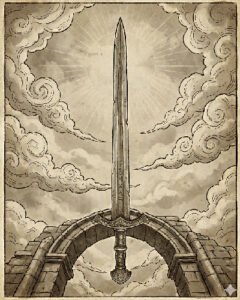
 Nothing and the Centaur
Nothing and the Centaur Guest Blog – Arunachala Girivalam by Vikrant Rawa
Guest Blog – Arunachala Girivalam by Vikrant Rawa Guest Blog – The Light of the Guru by Priya Tandon
Guest Blog – The Light of the Guru by Priya Tandon
 On The Occasion of Guru Purnima 2025
On The Occasion of Guru Purnima 2025

 The End of Duality
The End of Duality Advaita and the Energy Body
Advaita and the Energy Body True Apperception
True Apperception
 The World’s Best Astrologer
The World’s Best Astrologer Nisargadatta and the funeral of death
Nisargadatta and the funeral of death Ramesh Balsekar – Destiny’s child is 90
Ramesh Balsekar – Destiny’s child is 90
 Maharaj and the Trojan Horse of Conscious Presence
Maharaj and the Trojan Horse of Conscious Presence
 Consciousness and the Fenix
Consciousness and the Fenix Consciousness and the Now
Consciousness and the Now Spending no time with Eckhart Tolle
Spending no time with Eckhart Tolle
